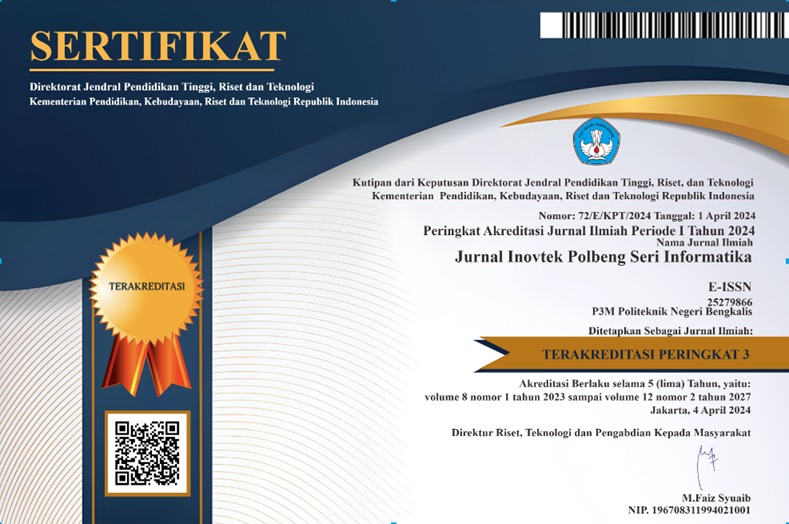The Comparison Between The Apriori Algorithm And The FP-Growth Algorithm In Determining Frequent Pattern
DOI:
https://doi.org/10.35314/s1yanj03Keywords:
Data Mining Methods, Data Mining, FP-Growth, frequent pattern, association rule mining, apriori algorithmAbstract
This study aims to compare the efficiency and accuracy of the Apriori and FP-Growth algorithms in determining frequent patterns from sales transaction data. In addition to evaluating execution time and the quality of the generated association rules, the study also examines the algorithm's advantages on small to large-scale datasets. The data used were collected from G Coffee’s sales transactions during the period from September 1 to November 30, 2024. After undergoing preprocessing stages, both algorithms were tested using three dataset variations to identify common association patterns, such as the relationship between “Mineral 660ml” and “Kopi Susu Aren,” along with other product combinations with high confidence and significant lift values. The results show that FP-Growth had a faster execution time (0.3008) compared to Apriori (0.5833), without compromising the accuracy of the results. Although both algorithms generated identical association rules, FP-Growth was superior in computational efficiency due to its ability to avoid explicit candidate itemset generation. These findings offer strategic benefits for companies, particularly in enhancing product promotion through bundling, cross-selling, and product grouping based on consumer purchasing patterns. Results, a hybrid approach is recommended to combine the processing speed of FP growth with Apriori’s flexible parameter adjustment, enabling more optimal analysis of purchasing patterns in large and complex datasets.
Downloads
Downloads
Published
Issue
Section
License
Copyright (c) 2025 INOVTEK Polbeng - Seri Informatika

This work is licensed under a Creative Commons Attribution-NonCommercial-ShareAlike 4.0 International License.














